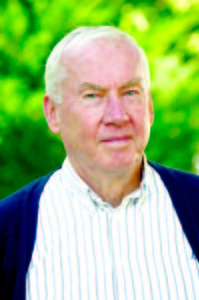Small World: The War on Terrorism (Cont.)
By Henry Precht
BN Columnist
Over three million French men and women and foreign leaders and visitors assembled in Paris last week to express outrage over the terrorist attacks in Paris, support for the principle of free speech and unity behind a common stand. The terrorists had murdered 12 cartoonists and journalists and the policemen assigned to protect them. The journalists’ offense? Publishing cartoons satirizing the Prophet Mohammed.
A short time later, other Parisians, including four Jews, were gunned down in an attack apparently linked to the not-very-funny humor magazine (Charlie Hebdo) killings. The perpetrators — two North African-origin brothers and a Black African — all Moslem extremists and French citizens — were killed by the police. A woman friend escaped to Syria.
That was Act 1. More violence and many more words are sure to follow. We might take a peaceful moment to address some of these concerns.
First, why the special sensitivity about a cartoon of the Prophet? For all Moslems that is a dire offense. Although the Koran does not specifically say so, traditions attributed to Mohammed forbid any human representation whatsoever and that ban is strictly observed by strict Moslems. In addition, it is an unpardonable sin to insult the religion’s founder. Violent reactions have occurred in the past when Danes and others have sought to ridicule the Prophet.
It’s not the same with other religions in our secular societies. True, some deeply religious Christians or Jews and other faithful will object to the denigration of their faiths, but it rare for them to respond with murder. That wasn’t always the case, history teaches us. Moslems today have been killed by Israelis who subscribe to the call “Death to Arabs.†And Protestants and Catholics in Northern Ireland still go at each other when prompted.
So the offending journalists knew they were courting trouble — either for themselves or perhaps French embassies or tourists. For them it seems, the principle of absolute free speech was sacrosanct. They would not tolerate exceptions for religious sensitivities. That’s a difference between the French (with exceptions for some groups) and other nations’ attitudes toward speech: We offer protection through libel, slander and hate-crime laws and we consider the wellbeing of the community — even though we will allow some pretty outrageous insults to be voiced.
Who’s right? I would vote for moderate restraints on speech. Too heavy a hand could rob the community of an opinion that deserves consideration (read John Stuart Mill.) And, whether minority or not, all segments of a community deserve a measure of toleration and respect.
That might be one of the most difficult problems confronting French Moslems, the largest Islamic group in Europe with many herded in slum-like apartments and unable to find work. With reason, they view themselves as second class in the larger society. It’s not a question of religious Moslems vs. defiantly secular Frenchmen (although that element is at play), but more the tensions of a minority that feels economically and socially rejected and disadvantaged. A better balance of foreign policy, especially on Middle Eastern issues, would also go a long way toward convincing Moslems that they, too, were fully French.
I’m afraid that’s not the direction the government in Paris is taking. Well before the massacres, the ruling Socialist Party was deeply unpopular. Now, they are doubly threatened by hard-line, anti-immigrant right-wingers who will wring the maximum advantage from acts of terrorism or signs of official wavering. Exploiting such a disaster comes naturally to all politicians, e.g., the parties to Israel’s national elections coming in March.
If Europe and the United States are to move effectively on the abiding threat of more murders, they will need the assistance of responsible Moslem leaders of acknowledged influence. And in order to win that support and backing, the French must, at a minimum, avoid further antagonizing the faithful — i.e., by ceasing to republish the offending cartoons of Mohammed.
We in the United States went beyond reasonable measures in our reaction to 9/11: — e.g., violating constitutional rights, restricting civil liberties, trying to nation-build Afghanistan, invading Iraq — mostly to our later regret. The French would do well to learn from our flawed script.
Henry Precht is a retired Foreign Service Officer.



